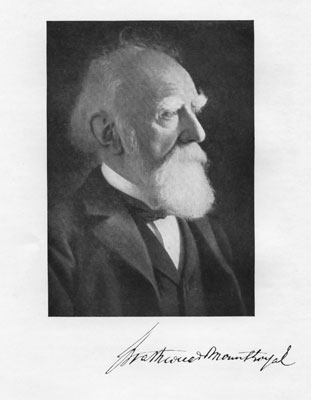Retirement
Retirement brought new possibilities for fur trade officers and servants, and experiences varied a great deal depending on a combination of factors such as an individual's financial resources and family commitments. Though some men stayed with the Hudson's Bay Company for only a few years, others spent all their working lives with it which frequently influenced how – and where – they chose to spend their old age.
In 1812 a colonization project was begun at Red River (present day Winnipeg) by Thomas Douglas, 5th Earl of Selkirk and a shareholder with the Hudson's Bay Company. Part of the reasoning for creating the settlement was to provide land for Highland Scots who had been dispossessed during the Clearances. It was also intended to provide a 'civilised' base for retiring fur traders and their families. In time it would become a source of employees, lessening the expense of recruiting servants from Scotland. The first settlers struggled with the harsh climate and the colony became the site of much economic and political unrest as well as violence early in its history and again in 1869. The Hudson's Bay Company released control of the colony in 1870, when Red River joined the Canadian Confederation. Further west, many fur trade personnel who had worked in the Columbia District, such as William Mitchell, who seemingly had no good reason to return to Aberdeen, retired to the growing settlement of Victoria.

George Keith retired to Aberdeenshire with his country wife, Ann Sutherland. His headstone is in Aberdeen's Nellfield Cemetery.
© Photograph by Alison Brown
Not all fur trade staff elected to remain in Canada, however. Private correspondence shows that, for some, thoughts of home were never far away and they were prepared to make sacrifices during their working lives to help secure a comfortable retirement in Scotland. When the time came, some abandoned their Aboriginal families and returned to the Scottish wives they had left behind years earlier. Others brought their 'country-born' wives and children with them. These families had to adjust to an unfamiliar social and cultural environment and would have responded in quite different ways to their new circumstances. Ann Sutherland, the 'mixed-blood' wife of George Keith, who moved with her husband to rural Aberdeenshire following his retirement in 1845, for instance, seems to have settled in well to her new home, though she returned to Montreal after her husband's death in 1859.

When William Ritch retired, he set up a Bed and Breakfast at Orgil Cottage, on his home island of Hoy in the Orkney Islands.
© Courtesy of Ben Dyson
Many fur traders stayed in touch with their friends and colleagues who had also retired to 'the old country', and this was as true for returning Hudson's Bay Company staff in the twentieth century as it had been in previous years. Having established close friendships and family networks as part of what has been loosely termed 'fur trade society' in Canada, they wrote to each other and visited when they could. They also used their time to explore a range of new pursuits, often in business or politics, or both. Donald Smith, 1st Baron Strathcona and Mount Royal, from Forres in the northeast of Scotland, never retired from the Hudson's Bay Company, but he did return to the United Kingdom in the late nineteenth century with his 'mixed-blood' wife, Isabella. Having worked his way up the HBC hierarchy to become the 26th Governor, he was involved in politics and business at the highest level in Canada and also took on numerous civic responsibilities on both sides of the Atlantic. These included the roles of rector (from 1899-1902) and Chancellor of Aberdeen University till his death in 1914. A more typical retirement experience was that of Smith's friend and former colleague, William Watt, who became involved in local politics in his home town of Stromness in the Orkney Islands, to which he had retired in 1876.

William Watt built Homlavoe in Stromness with money he earned in the HBC.
© Courtesy of the King Family



